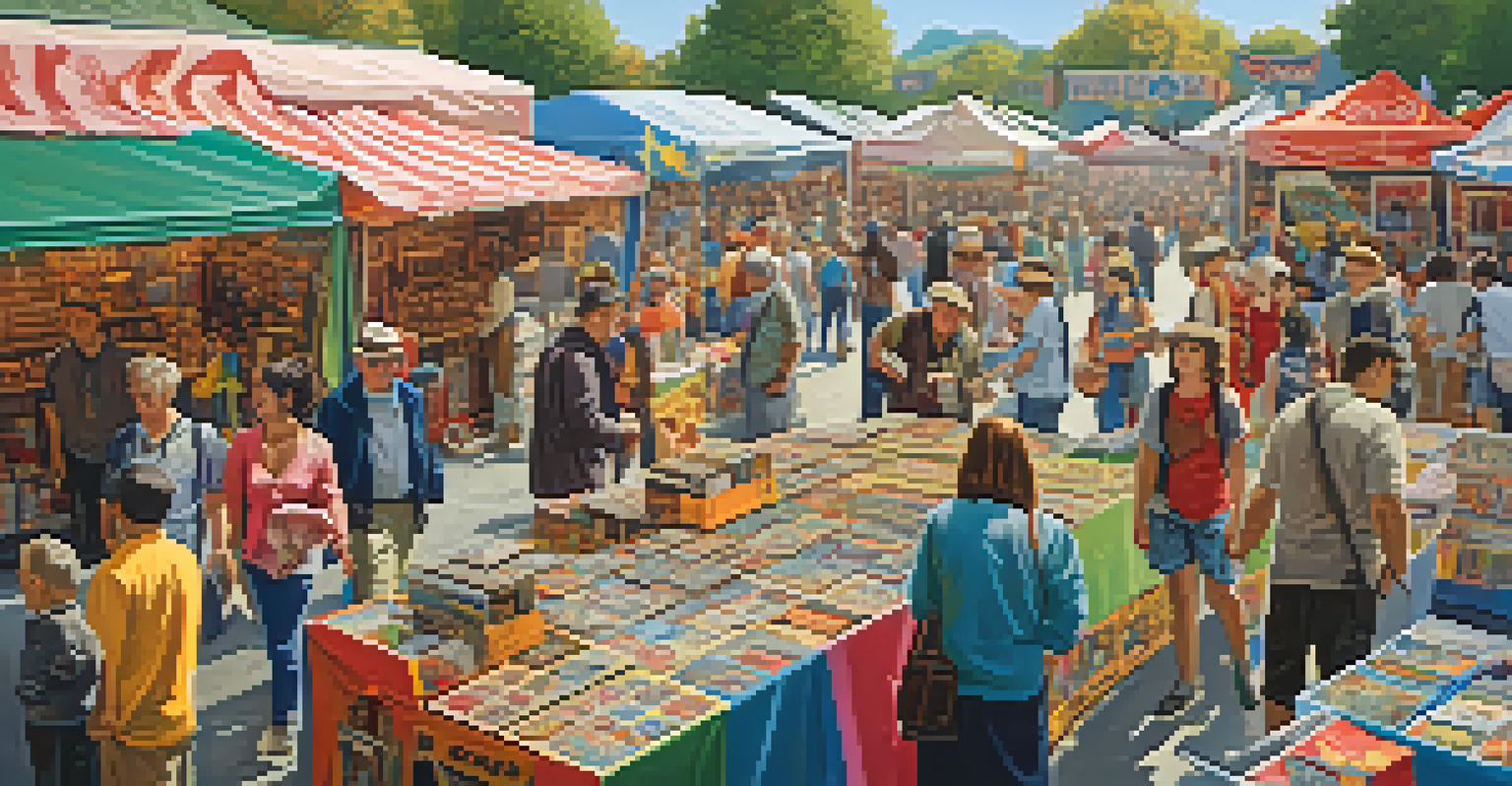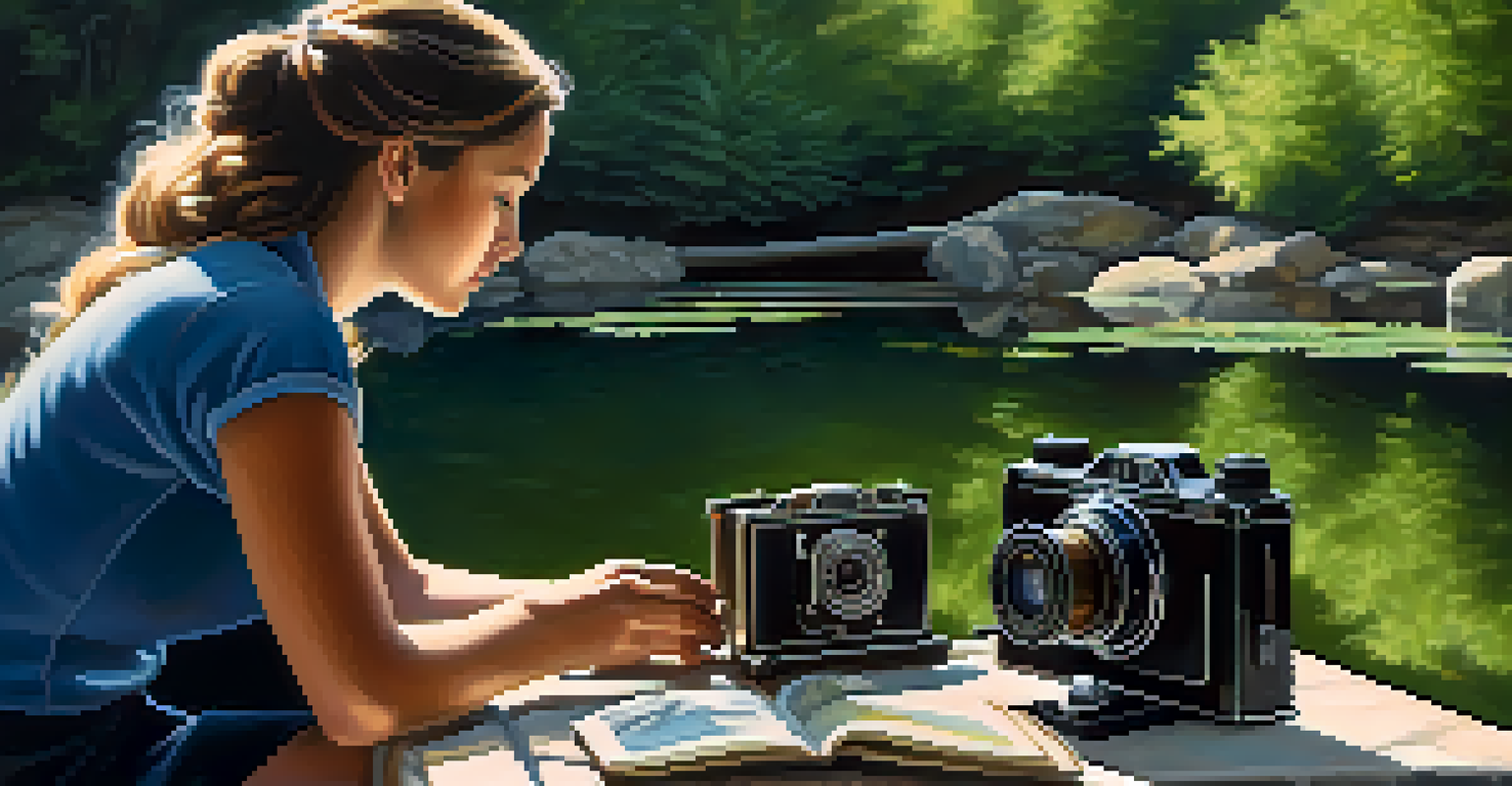The Psychology of Collecting: Understanding Collector Behavior

The Emotional Drive Behind Collecting
At its core, collecting is often driven by deep emotional needs. Many collectors find joy and satisfaction in the act of gathering items that resonate with them personally. This emotional connection can stem from nostalgia, where a collector might seek items that remind them of their childhood or significant life events.
Collecting is not just about acquiring things. It's about creating a narrative that reflects who we are.
Moreover, the thrill of the hunt plays a crucial role in the psychology of collecting. The excitement of discovering a rare item or completing a collection can provide a sense of achievement and fulfillment. It’s not just about the items themselves; it’s about the journey and the stories attached to each piece.
In many cases, collecting can also serve as a coping mechanism. People may turn to their collections during stressful times, finding comfort in the familiarity and control that comes from curating their own personal museums.
The Social Aspects of Collecting
Collecting often fosters community and connection among individuals who share similar interests. Engaging with fellow collectors can lead to friendships, exchanges of knowledge, and even emotional support. This social aspect can make the experience of collecting even richer and more fulfilling.

Events like trade shows, collector fairs, and online forums allow collectors to interact, share stories, and showcase their collections. These gatherings help to create a sense of belonging, which is a fundamental human need. The validation from peers can enhance the joy of collecting.
Collecting Meets Emotional Needs
Collectors often find joy and fulfillment through emotional connections to their items, driven by nostalgia and personal stories.
Additionally, some collectors see their collections as a way to communicate their identity. The items they choose to collect often reflect their values, interests, and experiences, making their collection a unique narrative of who they are.
The Role of Identity in Collecting
Our collections often become an extension of our identities. Collectors may gravitate towards items that resonate with their personal history, hobbies, or passions, effectively telling their story through their collections. This can lead to a profound sense of pride and ownership over the items they acquire.
The thrill of the hunt is what drives collectors to seek out the rare and the unique, often leading to a deeper emotional connection with their collections.
For instance, a collector of vintage vinyl records might see their collection as a tribute to their love for music and a nod to the eras that shaped them. In this way, collecting can be a form of self-expression, allowing individuals to curate a tangible representation of who they are.
Ultimately, the items a person collects can influence how they see themselves and how they wish to be perceived by others, making each collection a unique reflection of personal identity.
The Economics of Collecting
While passion drives many collectors, the economics of collecting can’t be ignored. Many collectors view their collections not just as hobbies but as investments. The potential for items to appreciate in value over time adds another layer of motivation to the collecting experience.
Understanding market trends, rarity, and demand can be crucial for collectors who want to ensure their collections hold value. This financial aspect can sometimes lead to heated debates within the collector community about what constitutes 'true' collecting versus merely investing.
Community and Identity in Collecting
Engaging with fellow collectors fosters community and allows individuals to express their identity through their unique collections.
However, the intrinsic joy of collecting often outweighs the economic factors for many. It's essential to strike a balance between passion and practicality, as the emotional fulfillment of collecting can be just as valuable as any financial return.
The Impact of Technology on Collecting
In recent years, technology has transformed the landscape of collecting. Online marketplaces, social media, and virtual communities have made it easier than ever for collectors to connect, trade, and showcase their collections. This accessibility has opened up opportunities for many to pursue their passions.
For example, online auction sites allow collectors from around the world to bid on items they may never have encountered in their local markets. This expanded access can lead to a more diverse collection and the chance to acquire rare items that might have otherwise remained out of reach.
However, technology also brings challenges, such as the risk of counterfeit items and the overwhelming nature of online choices. Collectors must navigate this digital landscape carefully, balancing the benefits of technology with the need for authenticity in their collections.
The Psychology of Completion and Obsession
For many collectors, the pursuit of completing a set can become almost obsessive. This drive to fill gaps in a collection can create a sense of urgency and purpose, pushing collectors to seek out elusive pieces. The satisfaction of completing a collection can provide a rush of dopamine that reinforces this behavior.
However, this quest can sometimes lead to unhealthy habits, such as overspending or neglecting other responsibilities. The line between passion and obsession can be thin, and collectors must be mindful of their motivations and behaviors.
The Evolving Landscape of Collecting
Technology and sustainability trends are reshaping collecting, blending traditional practices with new opportunities like digital collectibles.
Finding joy in the collecting process itself, rather than solely focusing on completion, can help mitigate these risks. Embracing the journey and appreciating each item for its unique story can add depth to the collector's experience.
The Future of Collecting: Trends and Predictions
As we look to the future, the world of collecting continues to evolve. Trends such as sustainability and digital collectibles are reshaping how individuals approach their passions. Collectors are increasingly considering the environmental impact of their acquisitions, favoring items that promote sustainability.
Additionally, the rise of non-fungible tokens (NFTs) has introduced a new dimension to collecting, allowing digital art and assets to be collected and traded. This shift presents both opportunities and challenges, as collectors navigate the implications of digital ownership.

Ultimately, the future of collecting will likely blend traditional practices with innovative trends, creating a dynamic landscape. Regardless of the form it takes, the emotional drive behind collecting will remain a central theme.